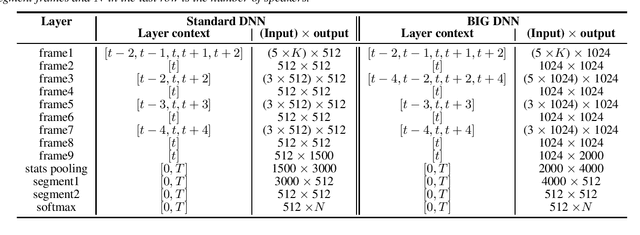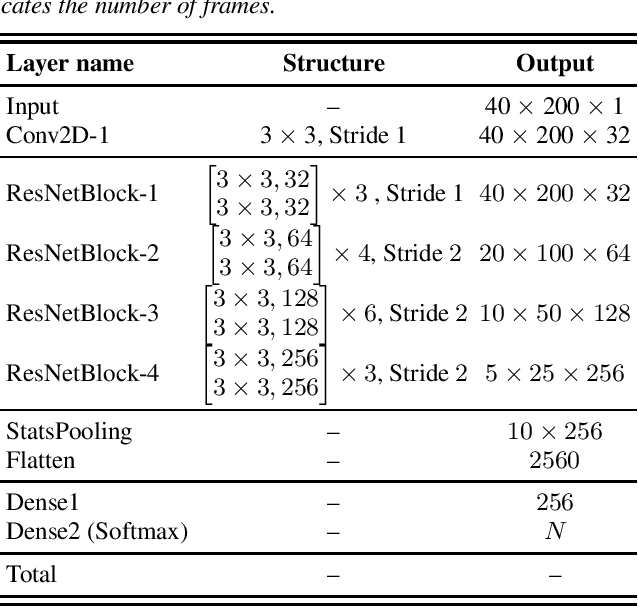Pavel Matějka
BUT System Description to VoxCeleb Speaker Recognition Challenge 2019
Oct 16, 2019


Abstract:In this report, we describe the submission of Brno University of Technology (BUT) team to the VoxCeleb Speaker Recognition Challenge (VoxSRC) 2019. We also provide a brief analysis of different systems on VoxCeleb-1 test sets. Submitted systems for both Fixed and Open conditions are a fusion of 4 Convolutional Neural Network (CNN) topologies. The first and second networks have ResNet34 topology and use two-dimensional CNNs. The last two networks are one-dimensional CNN and are based on the x-vector extraction topology. Some of the networks are fine-tuned using additive margin angular softmax. Kaldi FBanks and Kaldi PLPs were used as features. The difference between Fixed and Open systems lies in the used training data and fusion strategy. The best systems for Fixed and Open conditions achieved 1.42% and 1.26% ERR on the challenge evaluation set respectively.
BUT VOiCES 2019 System Description
Jul 13, 2019


Abstract:This is a description of our effort in VOiCES 2019 Speaker Recognition challenge. All systems in the fixed condition are based on the x-vector paradigm with different features and DNN topologies. The single best system reaches 1.2% EER and a fusion of 3 systems yields 1.0% EER, which is 15% relative improvement. The open condition allowed us to use external data which we did for the PLDA adaptation and achieved less than ~10% relative improvement. In the submission to open condition, we used 3 x-vector systems and also one i-vector based system.
 Add to Chrome
Add to Chrome Add to Firefox
Add to Firefox Add to Edge
Add to Edge